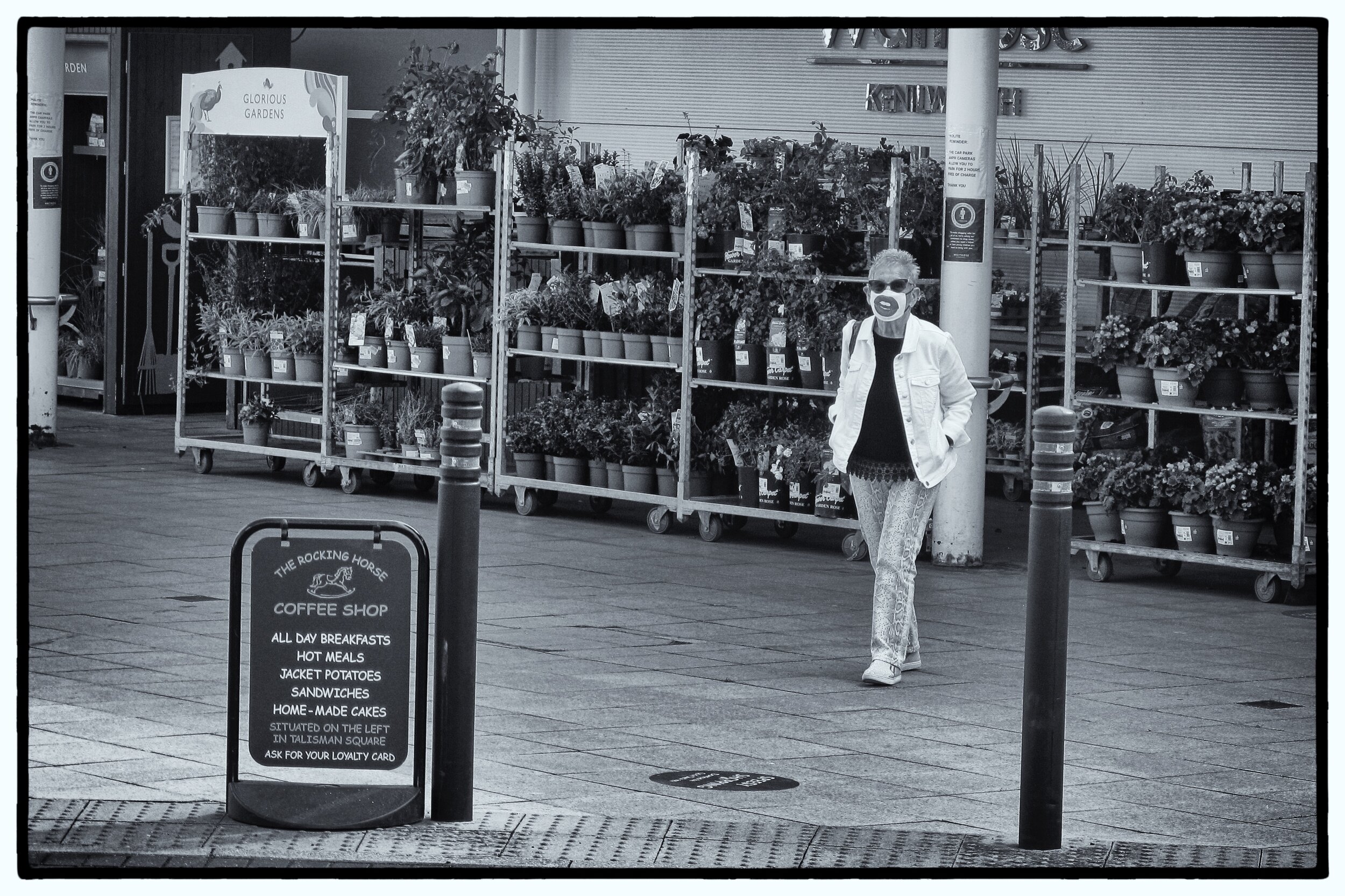Words by Vilja Wheatcroft
Peter Corbett - Photographer
Pandemic 2020
A metaphor on the pandemic’s appetite for frailty and vulnerability as sinister arms seem ready to consume another victim.
Masks decontextualise us, blur gender, and misplace us in our once comfortable and familiar environments.
Irony and pathos captured by the simple juxtaposition of shopfront text - abandoned dreams in troubled times.
Does being covered now mean that we become more confrontational towards the lens? Is there something disturbing about embracing the confidence we feel in our new anonymity?
Nature inevitably takes over places where businesses once thrived, and our celebration of the bucolic city wanes as the crisis lengthens.
The entrance to a hospital now becomes a place of threat, an abandoned wheelchair carrying an ominous portent. It takes courage to enter.
With the decline of the hospitality industry, an ambiguous misspelling on a closed venue serves as both a temptation to rebel and a dire warning of the consequences.
A naked mannequin and empty shelves serve as a metaphor for the ‘new normal’ on our abandoned and ailing high-streets.
The bizarre has become real in a way we never imagined – and our imaginations have started to define us.
An iconic name, now caught in tatters – peeling paintwork was never part of her aesthetic.
We appear to be embracing the new bucolic, yet in our anxiety, we have lost faith even in fresh air.
We continue to do the things we always did, sit in familiar places, tread familiar ways - but with more unease, needing arrows to guide us along those same pathways.
In the ‘rule of six’, the role of the photographer becomes a seventh ambiguous figure. So does the lens count? And are unmasked friends really friends?
Sheep feast on abandoned cabbages after foreign workers ‘stay at home’.
Hidden layers and hiding beneath layers – masks, corners, places to hide - and yet no place to hide.














